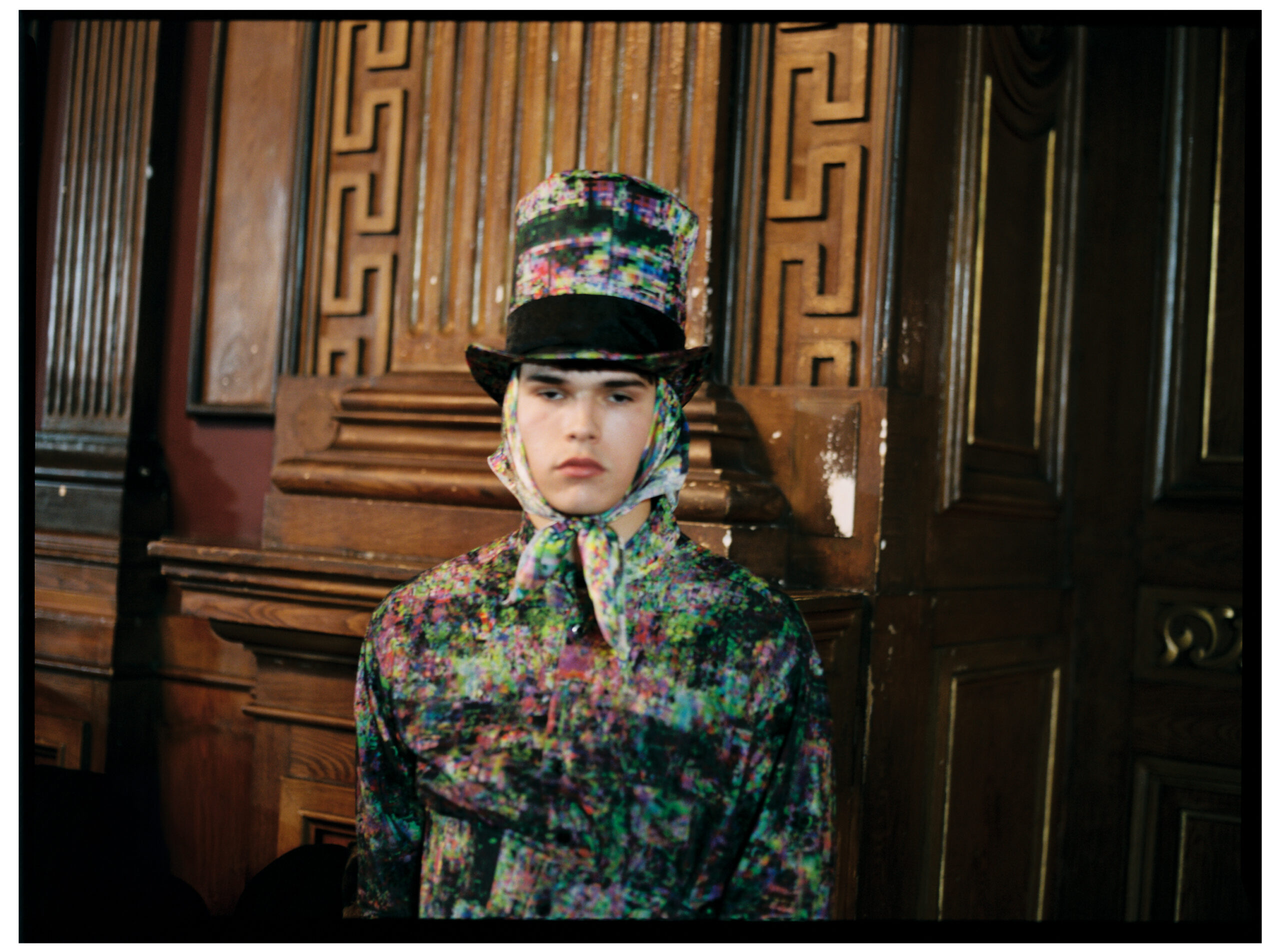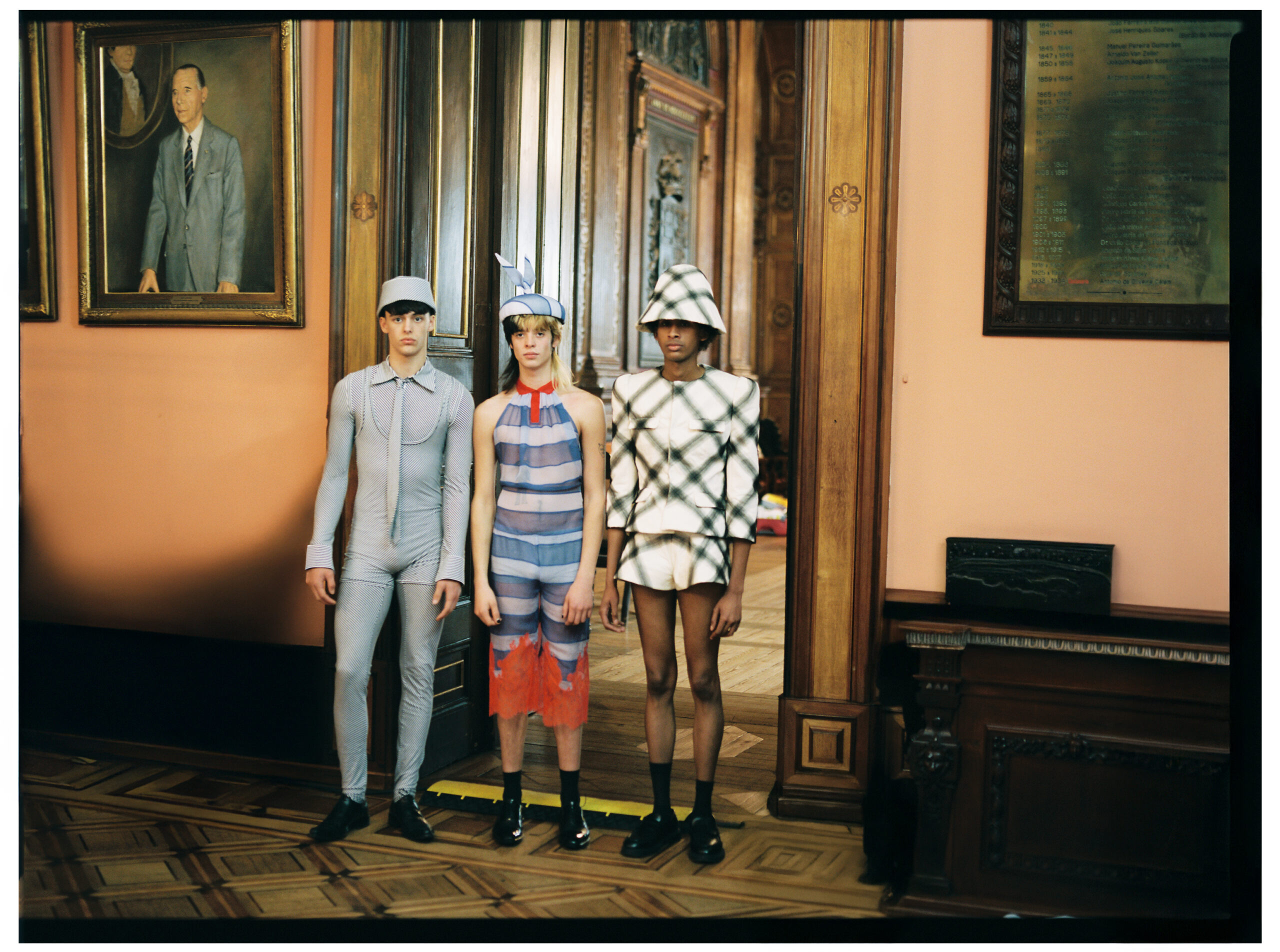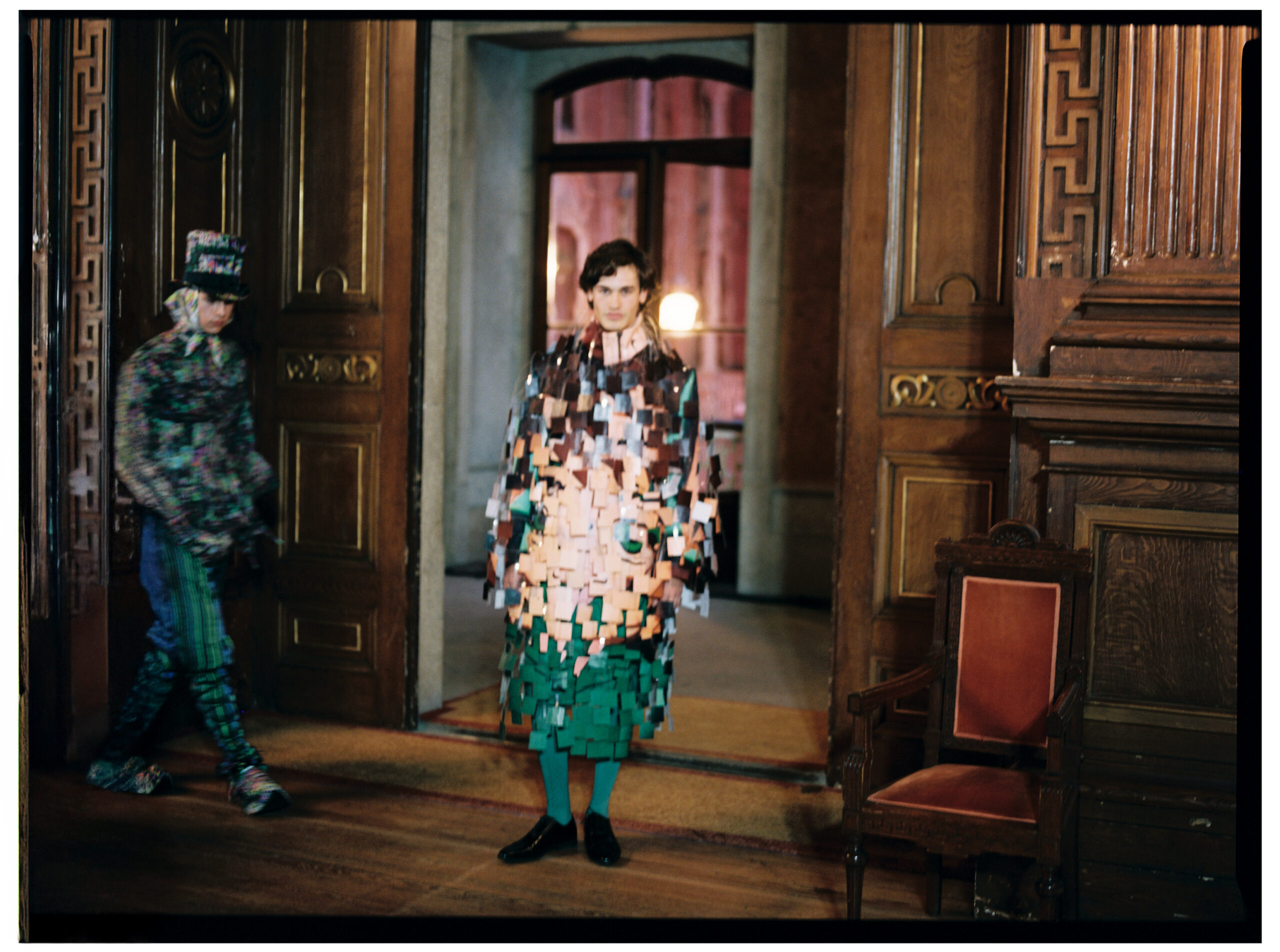The unstoppable dialogue between advanced technology and complex craftsmanship is at the forefront of this year’s Kornit Fashion Week Tel Aviv. Kornit, a digital fabric printing company which sponsored the fashion week in Tel Aviv, has helped many designers to develop new technologies in their collections, in addition to using artificial intelligence (AI) and digital appearance. Some of the designers presented ancient techniques as a means to express themselves through craft and tailoring, bringing a modern interpretation and a new unique perspective.
During this fashion week, the combination between digital fashion and classic tailoring has lessened the deep tension between both worlds and created a better way to bridge their gaps. Phygital, an emerging futuristic trend that is exciting the world, is one of the ways to combine physical garments with digital fashion. The Phygital trend addresses every aspect of our lives; blending the digital and physical together.

fashion. Placebo
Roei Derhi, a designer who owns the digital fashion brand “Placebo,” featured a Phygital collection on the Tel Aviv Fashion Week runway and made history when he became the first designer to do so. The purpose of his brand is to “make a change in people’s conception about fashion.” As one of the biggest digital fashion brands in Israel and known across the globe, it’s easy to argue that Derhi’s brand Placebo has made a different in people’s views of fashion and its capabilities.

fashion. Placebo

fashion. Placebo
Derhi’s Phygital collection “Babylon” tells the biblical story of the tower of Babylon, focusing on those who are trying to challenge God in building a high tower. Derhi uses the metaphor of Babylon to emphasize the power of the Internet in the 21st century and to blur the physical boundaries. The idea of the collection was expressed on the runway uniquely and magnificently: the digital fashion was screened behind while every digital look got a physical version on the runway.
The collection itself blends a few styles — from edgy streetwear that includes wide shapes and puffy coats to impressive gowns. It seems that, despite the different styles, all of the garments received an extravagant touch — something that is quite common in digital fashion. Those who buy digital garments want to feel the “wow” effect, to wear something different and feel special, something that is not always possible in the real world.

fashion. Placebo
The fashion designer David Weksler used advanced fabric printing technologies in collaboration with Kornit. For his new collection, Weksler decided to create his prints with artificial intelligence, in addition to showing the up-cycled garments that he identified with. Besides technology and his awareness for sustainability, Weksler is known as a designer who is engaged with political issues since his final collection at Central Saint Martins. For the last few months, Israel is facing a legal revolution which can potentially hurt the law system and also the democracy in the country. At the finale of his fashion show, Weksler chose to create a protest: the models walked onto the runway with protest signs in their hands.

fashion. David Weksler

fashion. David Weksler

fashion. David Weksler
Weksler’s visual DNA is already known for avant-garde and absurd fashion. This time he had an “advantage” in the message that he wanted to convey by creating chaotic and messy garments that matched the idea of the fashion show. The current collection presents unique streetwear, colourful elements and oversized shapes which refer to the political crisis as well as his whole concept. As a whole, the collection looks like it was taken from a different planet and asks substantive questions about the reality we are living in.

fashion. David Weksler
Yarden Hanuka is a young fashion designer who has established her streetwear fashion brand JOR-D while studying fashion design at Shenkar College. Hanuka presented her new collection, together with a few other young designers in a fashion show titled “Upcoming Designers.” Her collection was quite bold, thanks to the strong concept that she has built.

fashion. JOR-D
The latest collection “White Rabbit” connects high-quality streetwear and high-tech by creating a new magical world where there are white rabbits start to take over the human world. The white rabbit is a recurring motif in the collection, depicted through big rabbit face masks. The rabbit is a reference to the white rabbit from the classic Lewis Carroll book Alice in Wonderland, a character that is always in a constant rush with a ticking clock in hand, taking Alice on a crazy adventure.
At the fashion show, you could see in the digital appearance of the collection a lot of references from the high-tech world, interesting video art that included the iconic Microsoft Windows home screen, and more. In addition to the white rabbit masks, there were oversized garments with attention to small details, puffy coats, white boots, unique prints, and denim suits.

fashion. JOR-D

fashion. JOR-D
Ahron Genish, who was born and raised in a religious family, created a collection that tells his story through wonderful tailoring and attention to small details as well. With the current collection, it seems like Genish has researched the religious Jewish society from the point of view of an insider, and restored his memories about the personal experiences that he has gone through.

fashion. Ahron Genish

fashion. Ahron Genish
Although on the runway the collection looked quite sad and poignant, it was a powerful moment for Genish. He recreated symbolic elements from the religious world and gave them his unique style, showing a different interpretation. The collection includes craftsmanship and classic tailoring with modern twists and features monochromatic colours, tailored suits, collars that refer to the Victorian era, impressive hats, oversized cutouts, and childhood references. Genish’s personal story is grandly expressed in this collection, empowering the audience, giving them hope and inspiration for a better reality, and proving the human ability to change and grow from a place of pain.

fashion. Ahron Genish

fashion. Ahron Genish
Visit Tel Aviv Fashion Week for more information on the next edition.
photography. Noi Arkobi, Haydon Perrior, Mariya Sharf, Saar Pesach + Danielle Sinai Shvadron
words. Dor Gabay


Schön! Magazine is now available in print at Amazon,
as ebook download + on any mobile device



































































































